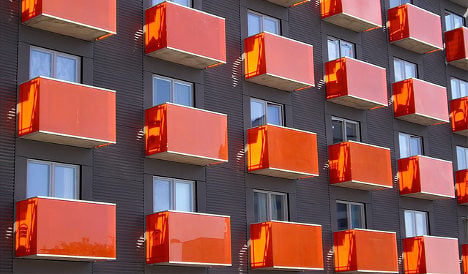Let The Local help you find an apartment in Sweden.
Check out our property rental section
Anyone hoping for a one-room apartment in Sweden will have to wait an average of 2.5 years, but the wait is far worse in Stockholm, new statistics showed on Tuesday.

Let The Local help you find an apartment in Sweden.
Check out our property rental section
Member comments